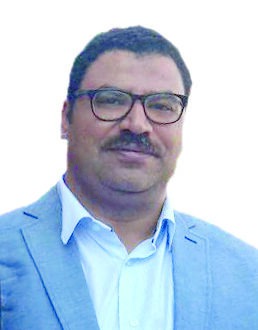A combination of climate change, armed conflict, and economic turmoil is whipping up the perfect storm that will bring on a food crisis. The consequences of the Coronavirus pandemic had already worsened the circumstances for the world’s already hungry population. However, the Ukraine-Russia conflict has made things even worse as it has cut off supplies from Ukraine’s ports, whence once came cooking oil, maize and wheat.
This has reduced the global supply and caused the price of alternatives to soar. The conflict has pushed global food prices up 30 per cent.
Although conflict remains the main driver of food insecurity, climate disasters have also played a role in endangering world food supplies. Weather extremes have pushed 23 million people worldwide towards food insecurity in 2021. Economic upheavals have affected 30 million across the world in the same period, according to the annual report launched by the Global Network Against Food Crises (GNAFC).
A recent UN report says 60 per cent of the world’s undernourished live in areas affected by conflict, while 140 million people suffering acute hunger around the world lived in just ten countries – Afghanistan, the Democratic Republic of the Congo (DRC), Ethiopia, Haiti, Nigeria, Pakistan, South Sudan, Sudan, Syria, and Yemen.
Recent politico-economic developments are already hindering international efforts to mitigate the hunger crisis. For example, the UN has halved food rations for refugees in parts of the Sahel Region.
UN Secretary General António Guterres recent remarked that we still can resolve the food crisis as the world is still able to produce enough food for all.
However, Guterres suggested that the first thing to do now is to end the Russia-Ukraine conflict. Easier said than done.
Meanwhile, it has become “more necessary than ever” for donours to fund humanitarian appeals with official development assistance.
During the recent World Economic Forum in Davos, Switzerland, head of the UN World Food Programme David Beasley reiterated calls to the world’s billionaires “to step up” amid the threat of rising food insecurity worldwide and says he’s seen encouraging signs that hyper-tycoons like Elon Musk and Jeff Bezos are getting into the action.
Beasley said that message was for every billionaire because “the world is in real serious trouble. This is not rhetoric and B.S. Step up now, because the world needs you.”
As world governments seem unable to break the deadly dynamic of conflict and hunger, can civil society and tycoons take the helm to prevent the looming hunger crisis?






Discussion about this post